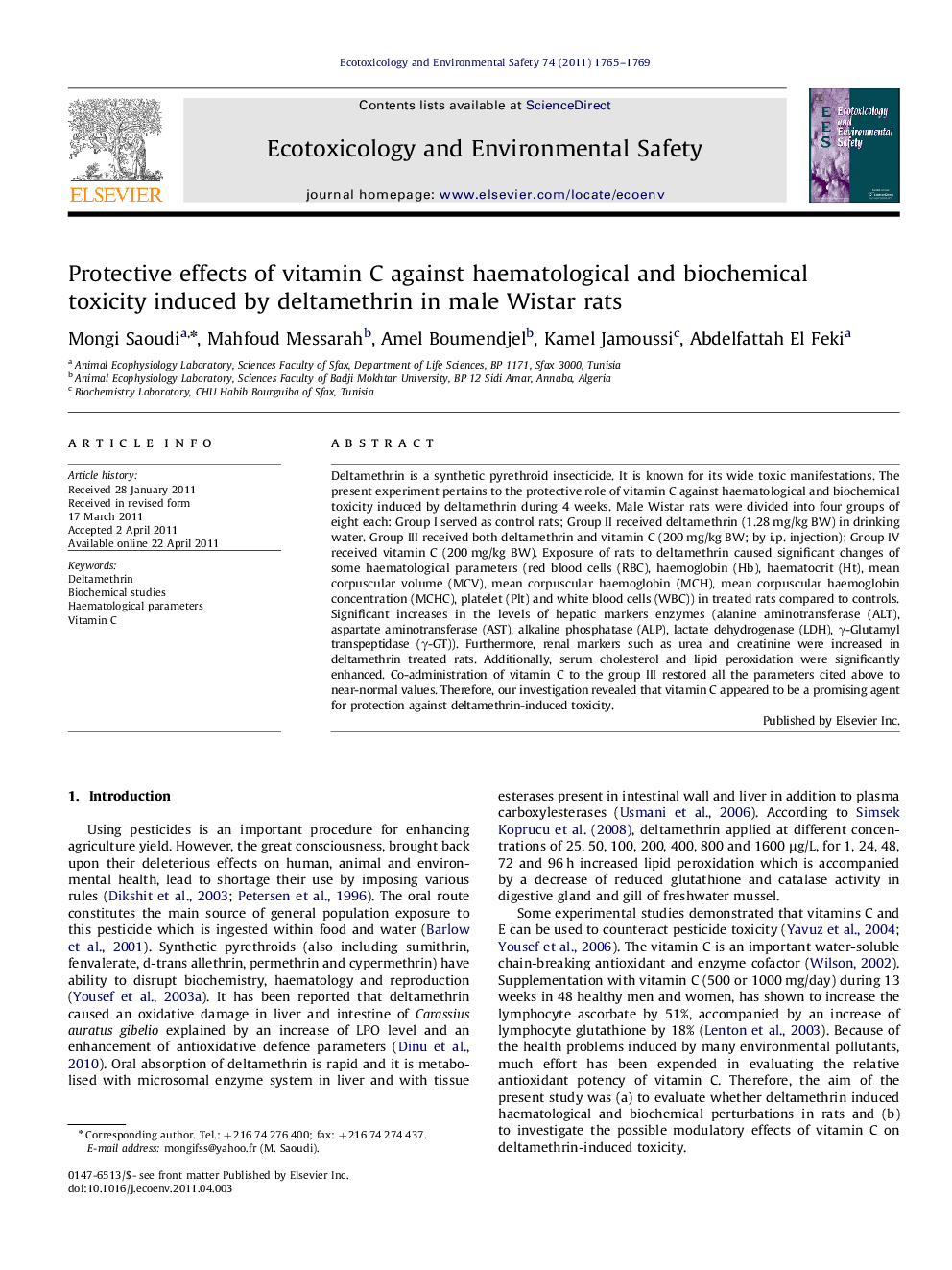| Article ID | Journal | Published Year | Pages | File Type |
|---|---|---|---|---|
| 4421115 | Ecotoxicology and Environmental Safety | 2011 | 5 Pages |
Deltamethrin is a synthetic pyrethroid insecticide. It is known for its wide toxic manifestations. The present experiment pertains to the protective role of vitamin C against haematological and biochemical toxicity induced by deltamethrin during 4 weeks. Male Wistar rats were divided into four groups of eight each: Group I served as control rats; Group II received deltamethrin (1.28 mg/kg BW) in drinking water. Group III received both deltamethrin and vitamin C (200 mg/kg BW; by i.p. injection); Group IV received vitamin C (200 mg/kg BW). Exposure of rats to deltamethrin caused significant changes of some haematological parameters (red blood cells (RBC), haemoglobin (Hb), haematocrit (Ht), mean corpuscular volume (MCV), mean corpuscular haemoglobin (MCH), mean corpuscular haemoglobin concentration (MCHC), platelet (Plt) and white blood cells (WBC)) in treated rats compared to controls. Significant increases in the levels of hepatic markers enzymes (alanine aminotransferase (ALT), aspartate aminotransferase (AST), alkaline phosphatase (ALP), lactate dehydrogenase (LDH), γ-Glutamyl transpeptidase (γ-GT)). Furthermore, renal markers such as urea and creatinine were increased in deltamethrin treated rats. Additionally, serum cholesterol and lipid peroxidation were significantly enhanced. Co-administration of vitamin C to the group III restored all the parameters cited above to near-normal values. Therefore, our investigation revealed that vitamin C appeared to be a promising agent for protection against deltamethrin-induced toxicity.
